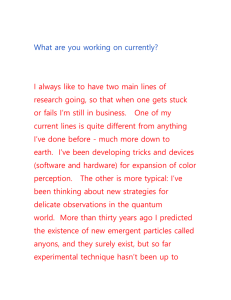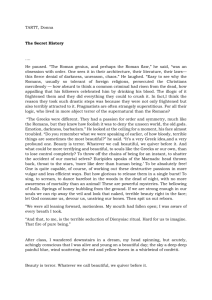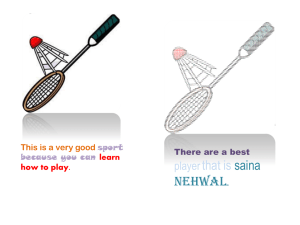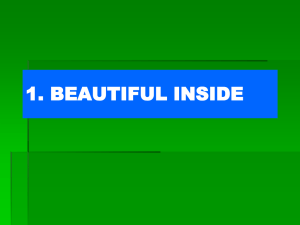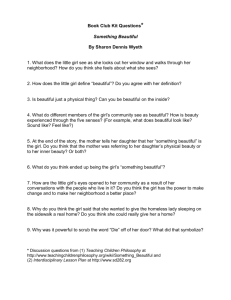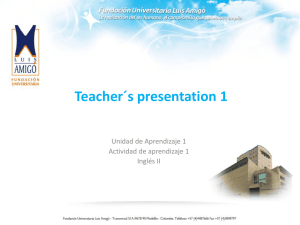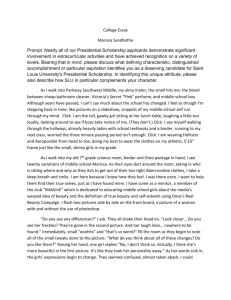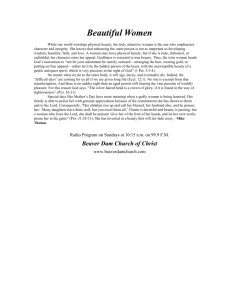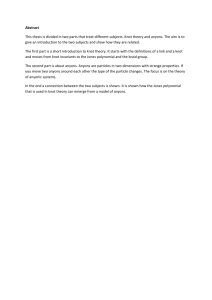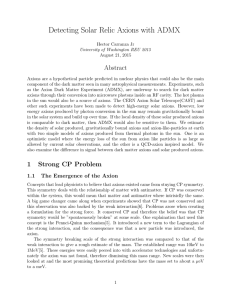BBCHorizonaQ+ACleanedUP
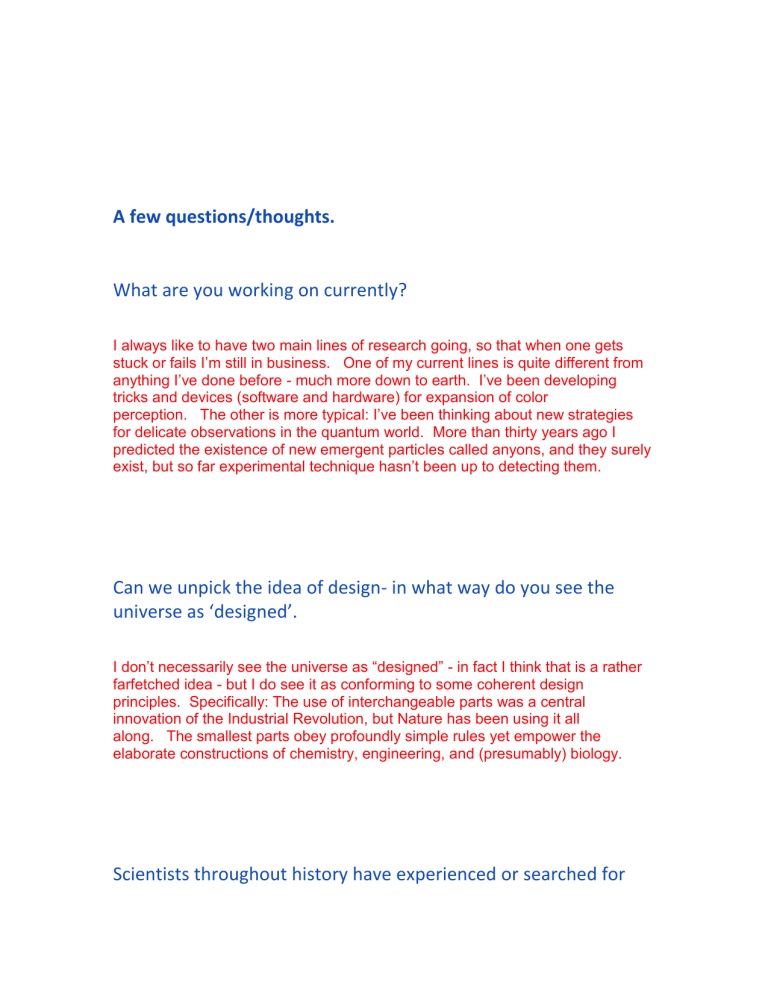
A few questions/thoughts.
What are you working on currently?
I always like to have two main lines of research going, so that when one gets stuck or fails I’m still in business. One of my current lines is quite different from anything I’ve done before - much more down to earth. I’ve been developing tricks and devices (software and hardware) for expansion of color perception. The other is more typical: I’ve been thinking about new strategies for delicate observations in the quantum world. More than thirty years ago I predicted the existence of new emergent particles called anyons, and they surely exist, but so far experimental technique hasn’t been up to detecting them.
Can we unpick the idea of design- in what way do you see the universe as ‘designed’.
I don’t necessarily see the universe as “designed” - in fact I think that is a rather farfetched idea - but I do see it as conforming to some coherent design principles. Specifically: The use of interchangeable parts was a central innovation of the Industrial Revolution, but Nature has been using it all along. The smallest parts obey profoundly simple rules yet empower the elaborate constructions of chemistry, engineering, and (presumably) biology.
Scientists throughout history have experienced or searched for
beauty in science, but you came to the idea of finding and experiencing beauty, explicitly, quite late. Almost a moment, or moments, of epiphany? What happened?
I simply hadn’t been thinking in those terms. When Darwin College invited me to speak on the subject of “Quantum Beauty”, I almost turned it down out of hand. It seemed outlandish. But the prospect of visiting Cambridge was so attractive, that I tried to do something with it. The more I thought about it, the more I realized that it was a compelling way to describe important aspects of humanity’s search for fundamental understanding, its recent triumphs, and my own career.
Why do you think some scientists (and non scientists ) are uncomfortable with notions of beauty and art in science especially advanced physics?
highly personal, as somehow too soft for hard science, too woolly for the pure rationalists?
Ignorance and lack of imagination. One can gather evidence, through the record of art, about what people have found beautiful, so it’s not entirely subjective and outside the realm of empirical observation. And one can investigate, in this way, whether some of the themes that people have found beautiful are aligned with the themes that emerge from our fundamental description of the world. I think
I’ve shown, in “A Beautiful Question”, that there are profound commonalities. Of course not all forms of beauty are represented in the fundamental laws, nor are all aspects of the fundamental laws beautiful. But the overlap is remarkable.
(See also the next response.)
How do you personally respond to equations and complex ideas you find beautiful?
An important part of my job is to improve our fundamental description of the world. These days, at the frontiers of physics, experiments are difficult and the
Core Theory (or standard model) is astoundingly successful.
We don’t have much in the way of *facts* that point in new directions. So to make progress we need to perceive conceptual imperfections, which I would say is an exercise in esthetics. Several of my best successes (QCD) and most promising innovations
(unification through supersymmetry, axions) have come through attempts to make our description of the world more symmetric and coherent - and I’m comfortable saying, more beautiful.
Another important part is to make the most of our discoveries, for "technology transfer” in the broad sense - adapting them to other fields and applications. This involves distilling their essence, which again is a kind of esthetic enterprise. Again, several of my best works (anyons, color-flavor locking, the
Wilczek vertex for Higgs particle production) came out of this.
So for me looking for beauty in the ideas is not an exercise in passive appreciation, nor mystic contemplation, but an active working method. If something looks too complicated or unnatural, I try to think of better ways to understand it, or to change it.
In the micro world you’re exploring, is it as much about finding ways to describe what you discover as it is actually discovering it?
What does this actually mean in practice- how do you go about making an equation beautiful, describing it- or how do you apply aesthetics to such a complex and often theoretical world?
(See preceding response.)
What are some of the latest developments in your work? Digging
into protons and neutrons, gluons, axions (and what are axions? )
Besides the research I’m actively pursuing, I’m waiting and watching while experimenters catch up with my earlier speculations. I’m hoping that axions — new particles introduced to solve an esthetic problem (involving time-reversal symmetry) in the Core
— are most or all of the elusive dark matter that astronomers are after. Axions have the right properties, but they’re difficult to detect. Only now is experimental technique getting adequate to the job. I’m also hoping that evidence for supersymmetry emerges at the LHC.
What next and where will it lead us? Are we on the verge, perhaps, of some huge, revelatory discovery or is it more a matter of piecing things together- describing them?
I hope anyons, axions, and supersymmetry all get validated (and that anyons help us to make quantum computers, and that axions form the dark matter). Observing any one of them would be a *major* step forward, and all three would be a trifecta.
I don’t think it’s terribly far-fetched, either.
Longer answers to this question are here: http://to.pbs.org/1Kr17ls , http://bit.ly/1FZhp10
60 second idea
95% of the Forum is spent discussing your & your fellow panellists' 'serious' ideas. However, the first five minutes of the second half of the Forum are given over to a segment called A
60 Second Idea (to change the world, in a small way), also known as the 'If I had a magic wand ....' spot. It gets a lot of traction and becomes a separate podcast too. Each week, one of the guests
gets a chance to suggest a way of solving a particular small, but highly irritating problem that has been plaguing him or her for a long time. This doesn't have to be realistic. On the contrary, the quirkier, the better - both for the 'problem' and for the 'solution'.
This is not a place for grand political ideas either (there isn't enough time to explore them properly).
It works best if the Idea is somehow, even tangentially, related to the week's topic but doesn't duplicate the main discussion:
Some of the most commented-upon 60-second ideas from past programmes include:
Citizens of countries that have high per capita carbon emissions should have salt water randomly piped through their homes.
We should throw out all modern guide books and gazetteers, and start travelling the world, using exclusively guide books and gazetteers that are at least a hundred years old.
We should eat more insects.
All parked cars should be camouflaged.
We should pop very small children's toys into unsuspecting strangers' pockets.
You might like to listen to one of the podcasts here: http://www.bbc.co.uk/podcasts/series/forum60sec (please paste this in your browser if you're asked for passwords or if clicking on the link doesn't work)
Once you state the essence of your idea, you then go on to explain why this would make the world a better place (in a very small way). Or why it would make you feel better. I hope that this might appeal to you.
School geometry should start with the science of perspective. This would empower students to do some attractive, surprising, artistic things right away.
They wouldn’t feel that they are passive recipients of useless information. It
would immediately enrich their experience of the (visual) world. Once you get the idea that parallel lines appear to meet at their vanishing point, you see it all around you,
I'm naturally terrible at drawing, so it was a revelation to me how it's possible, for example, to draw how a checkerboard really looks, from any angle, by following some simple but very clever and logical steps. When I first earned this, which was quite recently, I did it a dozen or so times, just because it's fun, and you get lovely results as if by magic. When Brunelleschi first discovered the technique, it was a sensation, and the artists of the Renaissance went wild over it.
The first steps in perspective are easier than Euclidean geometry, and they can be illustrated both with classic art works and with beautiful modern photographs.
I think one could package all this in a very inviting way, and get geometry classes off to a rousing start.
